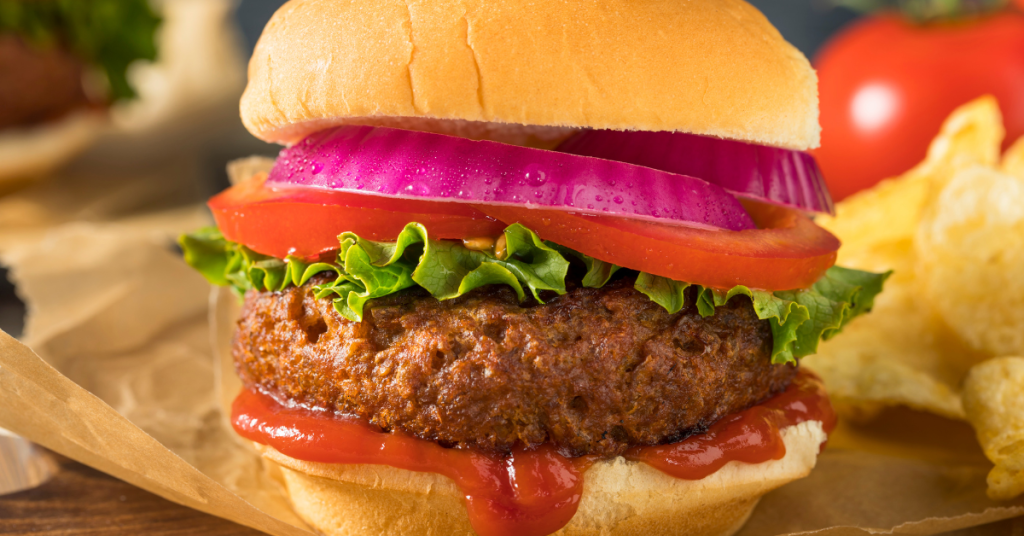Vegan Labelling Requirements: How to Label Vegan Food Packaging
Vegan Labelling Requirements: How to Label Vegan Food Packaging

Whether it’s just a preference for what milk people like in their coffee or a conscious lifestyle choice, veganism is growing in popularity and continues to push the demand for plant-based foods.
Unlike allergens or food additives which must be clearly labelled to follow UK food labelling regulations, the rules around vegan labelling are less clear. In this article, we explore the key considerations that food and drink businesses need to be aware of when labelling vegan products.
Table of Contents
What are the rules on vegan food labelling?
There’s no legal definition of the term ‘vegan’ in food law, nor is there official legislation governing how to use it on a food label. Ultimately, ‘vegan’ is a voluntary marketing claim. Although no law exists, the fundamental rules of food labelling regulations still apply – labels must accurately reflect the product and prevent misleading consumers.
Learn More: Food Labelling Regulations UK: A Complete Guide
To support food manufacturers and retailers in developing products in the vegan category, key industry bodies such as the FDF and ISO have published guidance documents and food standards in attempts to create consistency across the industry. These suggest criteria for the production, labelling and marketing of vegan products and many brands use the standards to develop their own internal ‘vegan’ policies which better protect consumers.
Additionally, when it comes to labelling products as vegan, there are several specific trademark vegan symbols which are recognised by consumers and the industry as a symbol of credibility (covered in more detail below).
Vegan trademark symbols
Food business operators who meet certain criteria can use two common vegan trademark symbols on their packaging. These marks illustrate that their products have passed the certification processes:
The Vegan Trademark
Created by the Vegan Society, the Vegan Trademark is an international vegan standard which shows the product does not contain animal products or animal by-products. It also illustrates that animals have not been involved in the testing of the product and no genetically modified animal genes or substances can be found in the ingredients.
This standard also clarifies that the product has been prepared and stored separately from non-vegan products, and that steps have been taken to avoid cross-contamination such as thoroughly washing equipment before it’s used for vegan cooking.
You can learn more about the Vegan Society vegan trademark criteria here.
The Approved Vegan Certification
Another third-party symbol used on vegan products is the Approved Vegan Product Certification, created by the Vegetarian Society. If a food producer wants to use this symbol, they must make sure the product does not contain any ingredients derived from an animal and that there has not been any cross-contamination from non-vegan products. The product must also not be tested on animals or contain any genetically modified animal genes.
You can learn more about the Vegetarian Society vegan trademark criteria here.
Are Vegan Products Allergen-Free?
No, vegan products are not necessarily allergen-free. Some consumers have a misconception that if a product is labelled vegan, it’s also free of allergens such as those derived from animal-based ingredients. This can cause confusion and danger for those with allergies to dairy, fish and eggs. Vegan food can be produced on the same line as non-vegan food which opens up the possibility for cross-contamination from products with animal-derived allergens.
In March 2024, The Food Standards Agency launched a campaign targeted at consumers, highlighting the risk of foods labelled as vegan to people with allergies. While consumers with a food allergy should be cautious with the products they choose – for example opting for the dairy-free option instead of the vegan option – it’s also the responsibility of food businesses to try to eliminate all risks when possible. If businesses can ensure that vegan products are produced without the presence, or potential presence of allergens. In that case, they can include ‘allergen-free’ or ‘free-from’ claims on the packaging to make consumers aware.
To be able to make these types of claims, strong controls and checks need to be in place. This area is incredibly important for businesses to manage as allergens pose a great threat to consumers, so the appropriate allergen labelling should always be used.
Learn More: Allergen Labelling: A Guide For Food Businesses
What’s the difference between vegan, vegetarian and plant-based?
There aren’t universally agreed definitions for each of these terms so the answer may vary depending on who you ask. Plant-based foods have emerged as a variation of a vegetarian/vegan/whole foods type diet. The general current approach from the food industry in the UK is described below.
Vegetarian
Foods that are not products of animal origin, and in the manufacture, preparation or treatment of which no ingredients (including additives and carriers) or processing aids of animal origin have been added or used intentionally, with the exception of milk, colostrum, birds’ eggs, beeswax, honey and propolis, their constituents and products derived from them.
The British Nutrition Foundation (BNF) provides this as a definition of vegetarianism:
“A vegetarian is usually described as someone who does not eat meat, poultry, fish, shellfish or any by-products of slaughter. Lacto-ovo-vegetarians, who include dairy products and eggs in their diets, are probably the most common type. However, there is no single, accepted definition of ‘vegetarian’.
You can read the Vegetarian Society’s vegetarian criteria here.
Some people follow predominantly plant-based diets and may occasionally eat animal products, such as meat or fish. Those who eat fish but no other meat are called pescatarians, while those who mostly eat plant-based foods but occasionally consume meat or poultry are often described as flexitarians. True vegetarians, however, do not eat meat, poultry, or fish.
Vegan
Foods that are not products of animal origin, and in the manufacture, preparation or treatment of which no ingredients (inc. additives, carriers, etc) or processing aids of animal origin have been added or used intentionally.
Plant-based
The term ‘plant-based’, as with vegan and vegetarian, has no universal definition. The Vegan Society reports it emerged as a phrase to avoid the controversy that at the time surrounded terms like vegetarian. The use of ‘plant-based’ on labels may be used to describe alternatives to animal products that are derived from plant sources, for example, plant-based burger patties or plant-based mince (although, different countries allow different approaches to this). It may also form part of the ‘romance’ or marketing copy for products that are suitable for people following a vegetarian or vegan diet, for example, a plant-based chilled coffee that makes no compromise on taste. As such, not all products labelled plant-based should be assumed to be vegan. However, ISO has published an industry standard for using the wording ‘100% plant-based’ which does say there must be no ingredients derived from animals.
What to consider before making a vegan or plant-based claim
Before making a vegan claim on your packaging, you should consider the following:
Is your product and business truly vegan?
If you want to call your product vegan-friendly, then it should follow the credentials for either The Vegan Society’s vegan trademark or The Vegetarian Society’s vegan or plant-based certification. You may need to ask your suppliers for additional information before you can be sure you meet all these requirements. Ensure you have sufficient documentation to substantiate decisions made on labelling products as vegan.
Are you meeting consumer expectations?
If you are aiming your products at strict vegans then you need to think about all aspects of production – which includes the harvesting of ingredients, packaging, storage, testing and manufacturing process.
Do you have a strong and clear brand policy?
Start by working backwards and think about where you want to be in the marketplace. Are you releasing a meat-free alternative to help people reduce their meat intake or do you want to be a solely vegan brand? Once you know this you can then begin to understand which audience you are targeting and how strict they will be about the food they consume.
Support with vegan product labelling
If you need support with vegan labelling requirements or marketing for your food or drink products, or if you need help navigating the world of food labelling compliance, get in touch with Ashbury.
Next reads
What’s Next for Food & Drink? Our Experts’ Predictions for 2026
The Peanut Diaries: School and Social Occasions
The Peanut Diaries: Navigating Social Events and Celebrations with Food Allergies
The Peanut Diaries: A Parent’s Journey to Uncovering their Child’s Allergy
Keep up to date with our latest insights
Subscribe to our mailing list to stay in touch with the latest news, insights and updates from Ashbury





